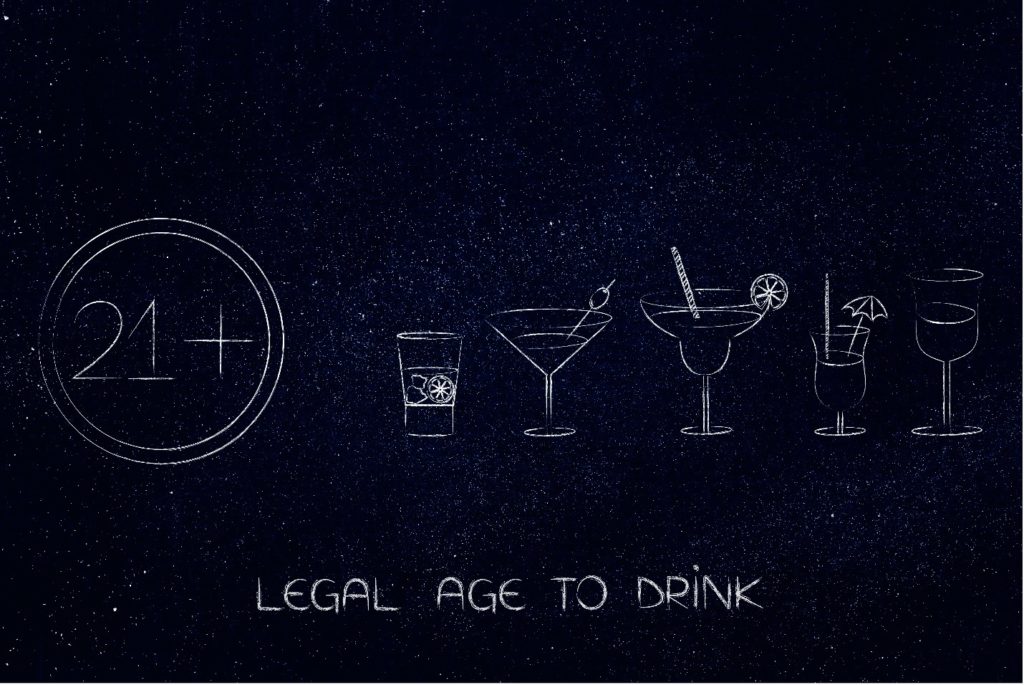Legal Drinking Age: Is It Ever Legal for Minors to Drink?


“Just a sip.” How many parents have said this to their children? It might seem harmless, but there is a legal drinking age for a reason. Don’t let the temptation to be a “cool parent” lead you to make bad decisions when it comes to underage drinking.
Allowing children to consume alcohol before they reach the legal drinking age is more than a bad idea. It could have a long-standing impact on both you and your children. Learn more about why we have a legal drinking age and why it’s important that parents and their children follow the law.
The Legal Drinking Age Has Been 21 Longer Than You Think
You have probably heard friends and family members talk about the past when the legal drinking age was below 21 in many states. This may lead you to believe that having a legal drinking age of 21 is a relatively new development. It turns out this law is not new at all.
The 21st Amendment, which repealed prohibition, was passed in 1933. At that time, many states established a legal drinking age of 21, although some set their age lower. It wasn’t until the 1960s and 70s that more states began lowering the drinking age. Studies by the NIAAA show that 60 percent of traffic deaths were related to alcohol by the mid-70s, with more than two-thirds of auto accidents involving young people between 16 and 20 years old.
This sharp increase in drunk driving led to the creation of the Minimum Drinking Age Act of 1984. The act called for states to raise the legal drinking age back to 21. If states chose not to raise the drinking age, they would no longer receive federal funding for highways. All states changed their legal drinking age to 21 by 1988.
Why Shouldn’t People Drink if They’re Under 21?
There are plenty of sound reasons why young people should not drink before the age of 21. First of all, drinking underage damages the teenage brain. Alcohol has different effects on a teenaged brain than an adult brain. This is because the human brain isn’t actually fully developed until close to age 25.
Adults and young people behave differently when drinking alcohol because their brains have a different reaction. Adults are more prone to the short-term effects of alcohol, like becoming sleepy or losing their balance. Teenagers are less likely to feel these effects, which may lead them to drink more, and make poor decisions, like getting behind the wheel of a car.
Is It Ever Okay to Drink if You’re Under 21?
That is a question we see more often than you might think. North Carolina has some of the strictest underage drinking laws in the country. That means there are not many exceptions when it comes to the possession or consumption of alcohol by someone under the legal drinking age.
You may wonder what this means for churches or underage people working in restaurants. Under North Carolina law, exceptions to the underage drinking rule include the following:
- Religious and sacramental purposes in an organized church or by an ordained minister
- The use of ethyl alcohol for scientific purposes
- Use by licensed physicians, pharmacists, or surgeons for medical or pharmaceutical purposes
- Under the direct supervision of an instructor in a culinary class at an accredited institution
While these are only a few of the exceptions under North Carolina law, just remember if it’s not for church, school, or science, it’s illegal to consume or possess alcohol underage.
Take the Pledge With Your Teen to Stop Underage Drinking
It may not seem like a big deal, but science and common sense show us that it is never a good idea to allow minors to consume alcohol before they reach the legal drinking age. Explain to your teen that there’s a good reason why the drinking age is 21. That reason is to protect teenage brains and lives from the dangers of underage drinking. Take the Pledge with your teen to talk it out when it comes to the dangers of underage drinking.



